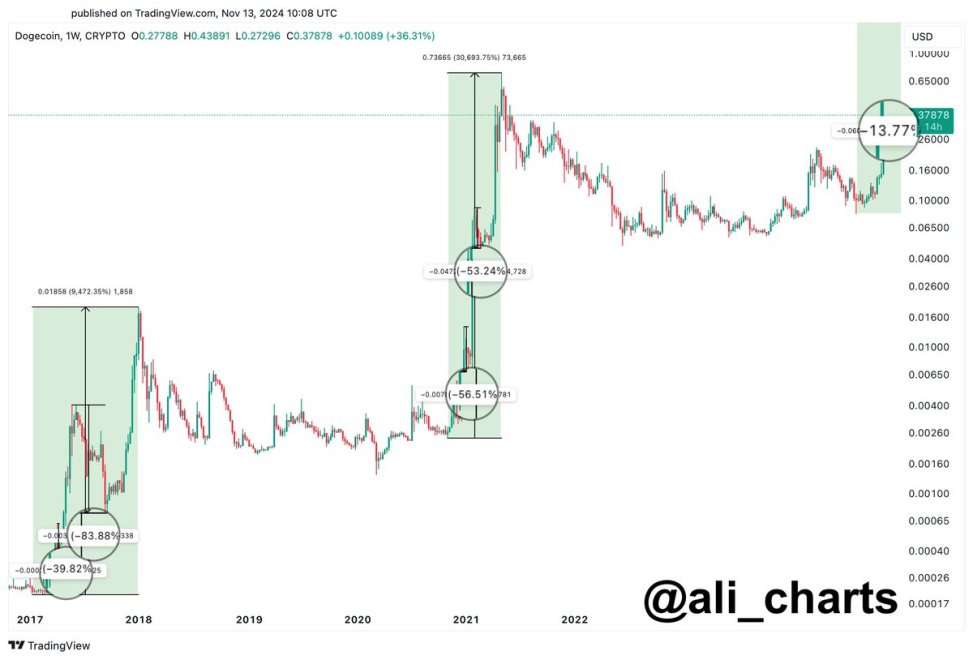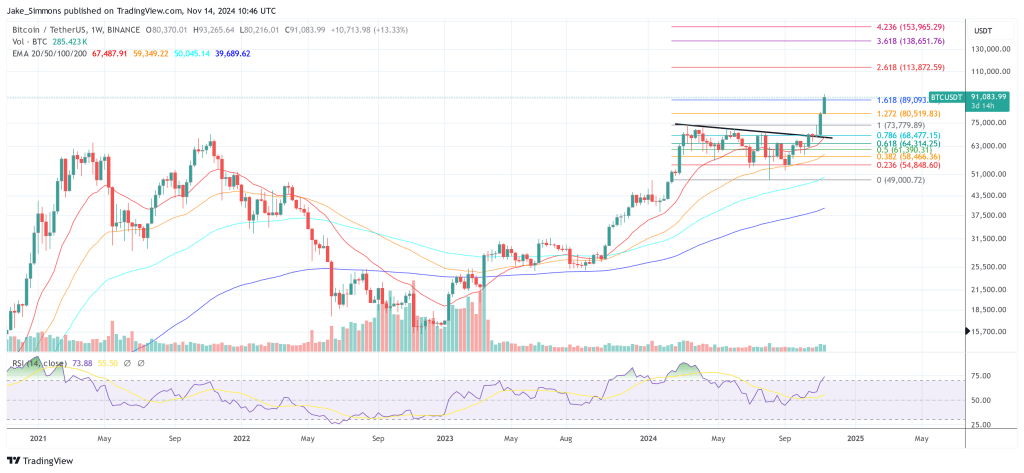It can be challenging to keep faith in Bitcoin and it's protocol if you have a hard time understanding the underlying technology and principles that are at work. I think now might be a good moment to share some of my favorite sources that not only have helped me understand Bitcoin, Blockchain and digital assets as someone new to this space, but it has also helped me keep faith in the technology in the face of volatility, price drops etc.
What is Bitcoin a solution to? What is the actual problem? Why is it future proof? These are some of my favorite sources to better understand Bitcoin:
The Sovereign Individual: Mastering the Transition to the Information Age by James Dale Davidson and William Rees-Mogg.
Where are geopolitics, economies and ideologies headed in the face of the information age?
This book, written in 1997, explores the profound social and economic transformations brought about by the rise of digital technology. The book predicts the decline of the nation-state and the rise of individuals as powerful entities, empowered by technology to bypass traditional systems of control and taxation. The authors argue that the information revolution will lead to a new form of economy where individuals can operate independently of governments, relying on digital currencies and encrypted transactions.
Bitcoin is particularly significant in this context as it embodies the principles of decentralization, privacy, and autonomy that "The Sovereign Individual" envisions. By providing a practical tool for financial independence and challenging the traditional banking system, Bitcoin exemplifies the book's predictions about the future of economic sovereignty. The authors' insights have been seen as prescient, capturing the transformative potential of digital currencies and their impact on individual freedom. The book is important because it offers a framework for understanding the societal shifts that cryptocurrencies like Bitcoin are driving, emphasizing the move towards greater personal empowerment and the diminishing role of the state in economic affairs.
The Bitcoin Standard: The Decentralized Alternative to Central Banking by Saifedean Ammous
Why is FIAT money and central banking a problem? And why is Bitcoin the solution?
This book delves into the history of money and the emergence of Bitcoin as a new form of sound money. Ammous begins by examining the evolution of money from primitive forms like shells and beads to precious metals and fiat currencies, highlighting the inefficiencies and vulnerabilities of government-controlled monetary systems. He argues that the adoption of Bitcoin can address these issues due to its decentralized nature and limited supply.
The book explains how Bitcoin's protocol ensures scarcity, with a cap of 21 million coins, and describes how its decentralized ledger (blockchain) provides security and transparency. Ammous contrasts Bitcoin with traditional fiat currencies, which are subject to inflation and manipulation by central banks. He emphasizes Bitcoin's potential to offer a stable, inflation-resistant alternative that can preserve value over time.
Antifragile: Things That Gain from Disorder by Nassim Nicholas Taleb
Why is volatility good for Bitcoin? And how is it possible that the asset is growing in the face of setbacks?
- Antifragility vs. Fragility: Taleb categorizes things into fragile (harmed by chaos), robust (unaffected by chaos), and antifragile (benefited by chaos).
- Lindy Effect: The idea that the longevity of non-perishable items (like books or technologies) is proportional to their current age, meaning the longer something has survived, the more likely it is to continue surviving.
Among other things, this is how antifragility relates to Bitcoin:
Bitcoin's decentralized nature ensures that no single point of failure can compromise the entire network. This decentralization makes it robust against attacks and failures of individual nodes, contributing to its overall antifragility. When parts of the network are attacked or fail, the rest of the network continues to operate and can even strengthen as it adapts to new threats.
Bitcoin's price has experienced significant volatility since its inception. While volatility can be detrimental to fragile systems, Bitcoin has benefited from it. High volatility attracts attention, new investors, and developers, leading to increased adoption, improved technology, and a stronger, more resilient network. The speculative nature of Bitcoin has driven innovation and market interest, reinforcing its antifragility.
As Bitcoin faces challenges, it often spurs innovation and improvements within the ecosystem. For example, scalability issues led to the development of the Lightning Network, a layer-2 solution designed to increase transaction throughput and reduce fees. Similarly, regulatory pressures have encouraged the creation of privacy-enhancing features and more sophisticated financial products. These innovations help Bitcoin adapt and thrive in changing environments.
I think the three theories that take up center stage in the books mentioned above can provide you with the necessary point of reference to have faith in the future of Bitcoin and Blockchain technology.
I hope this post is helpful to people either new to Bitcoin or people that are looking for some reinforcement of their faith in Bitcoin.
[link] [comments]

You can get bonuses upto $100 FREE BONUS when you:
💰 Install these recommended apps:
💲 SocialGood - 100% Crypto Back on Everyday Shopping
💲 xPortal - The DeFi For The Next Billion
💲 CryptoTab Browser - Lightweight, fast, and ready to mine!
💰 Register on these recommended exchanges:
🟡 Binance🟡 Bitfinex🟡 Bitmart🟡 Bittrex🟡 Bitget
🟡 CoinEx🟡 Crypto.com🟡 Gate.io🟡 Huobi🟡 Kucoin.
















Comments